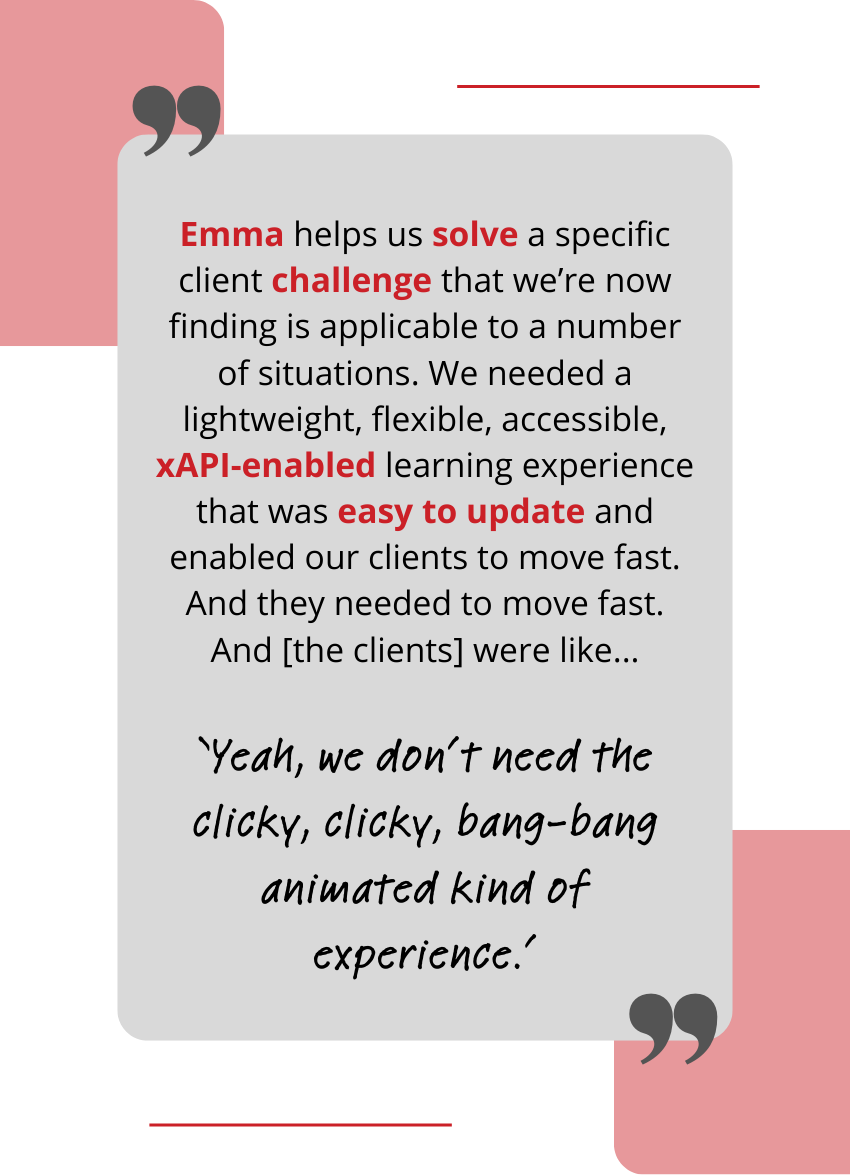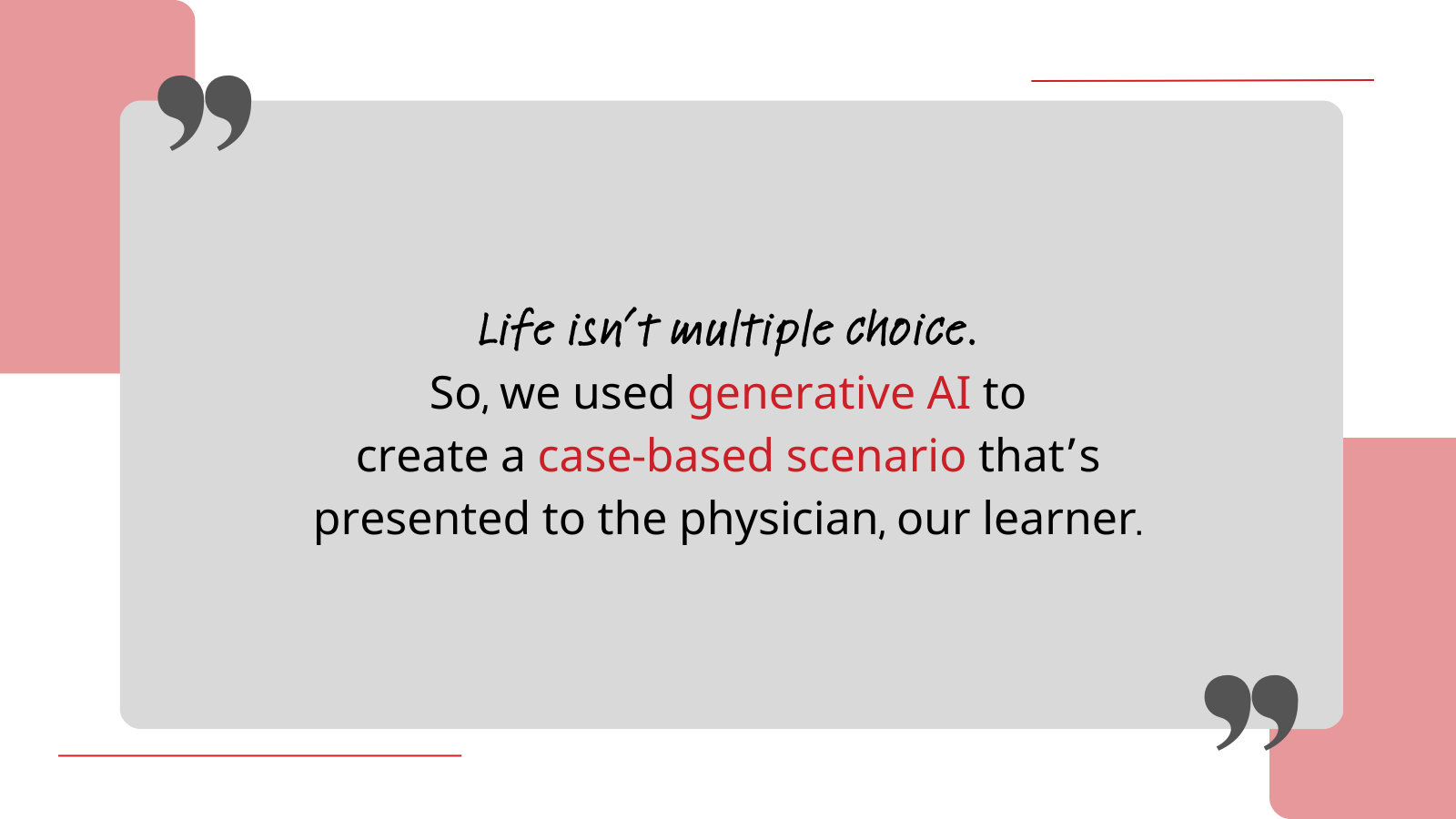Unveiling the Future of Learning with xAPI: Code Name ‘Emma’
In the first episode of RISC’s new video series ‘xAPI in Action‘ which explores the cutting-edge of learning technology, I had the pleasure of sitting down with Megan Torrance, the founder of TorranceLearning. We discussed the transformative power of xAPI in the realm of learning and development. Megan, a seasoned expert with over two decades of experience in this space, shared her invaluable insights and the innovative work her company is doing to revolutionize professional development.
TorranceLearning: Pioneers in Learning Strategy and Development
TorranceLearning isn’t just another company in the L&D industry; they are at the forefront of connecting learning strategy, design, development, delivery software, and data, while heavily focused on professional development for the entire learning industry. The group leverages agile project management, xAPI, data analytics, learning science, and artificial intelligence to develop best-in-class solutions. Megan’s passion for this mission was palpable as she spoke about the company’s dedication to helping people grow professionally.
The Genesis of Megan’s xAPI Journey
 Megan’s journey with xAPI began with two pivotal projects that bridged learning and performance. She quickly recognized xAPI’s potential to overcome the limitations of SCORM, leading her to join the design cohorts run by the Advanced Distributed Learning group under the US Department of Defense. Her involvement in these cohorts was a game-changer, solidifying her commitment to the xAPI standard. Furthermore, Megan and her team at TorranceLearning actively ran xAPI Cohorts from 2015 to 2022, until transitioning to the Learning Guild for oversight.
Megan’s journey with xAPI began with two pivotal projects that bridged learning and performance. She quickly recognized xAPI’s potential to overcome the limitations of SCORM, leading her to join the design cohorts run by the Advanced Distributed Learning group under the US Department of Defense. Her involvement in these cohorts was a game-changer, solidifying her commitment to the xAPI standard. Furthermore, Megan and her team at TorranceLearning actively ran xAPI Cohorts from 2015 to 2022, until transitioning to the Learning Guild for oversight.
The Evolution of Learning Management Systems
Our conversation took us through the evolution of learning management systems and the industry’s shift towards mobile and flexible learning experiences. xAPI stands out by capturing student behavior at a more granular level than earlier learning standards such as SCORM and AICC. xAPI helps free us from the limitations of the LMS supporting smaller, more infrequent learning experiences, performance support tools and tracking actual performance. This provides a comprehensive view of an individual’s development, something traditional systems have struggled to achieve.
Introducing “Emma”: The xAPI and AI-Enabled Learning Experience
Megan introduced us to a project that her company developed, code-name “Emma.” It’s an XAPI-enabled tool that incorporates artificial intelligence to offer a lightweight, flexible, and accessible learning experience. Initially designed for a specific client, Emma’s unique approach is applicable across various industries. Its light-weight authoring environment is remarkably user-friendly, allowing content and media to be easily added by instructional designers or subject matter experts.
 Emma leverages xAPI and cmi5 to track a wide array of actions and interactions, from course duration to test scores and even learner responses to case-based scenarios. The AI component provides feedback but that does not mean it takes the burden off the development team. Megan noted that it took three times the content from subject matter experts in this case to provide the AI engine with enough fodder to formulate accurate and applicable feedback. This accuracy is critical for training on medical case scenarios. Emma must also maintain a full audit trail, which is provided through xAPI, ensuring accountability and transparency to learners.
Emma leverages xAPI and cmi5 to track a wide array of actions and interactions, from course duration to test scores and even learner responses to case-based scenarios. The AI component provides feedback but that does not mean it takes the burden off the development team. Megan noted that it took three times the content from subject matter experts in this case to provide the AI engine with enough fodder to formulate accurate and applicable feedback. This accuracy is critical for training on medical case scenarios. Emma must also maintain a full audit trail, which is provided through xAPI, ensuring accountability and transparency to learners.
Audio Tracks and Data Analysis: Uncovering Learner Preferences
Our discussion provided fascinating insights gained from data analysis. For instance, about a third of learners never used the audio function in Emma’s learning modules. Another third used it consistently, and the remaining third use it sporadically. This data is crucial for instructional design, influencing how we cater to diverse learning preferences. As usage builds, we can see if and how these learner preference may impact test scores.
The Challenge of Data Overload
Megan and I delved into the challenges of managing data overload and the importance of

prioritizing valuable data for learners, training organizations, and instructional design. Data can be captured for a number of purposes – validating design, evaluating usefulness, and providing evidence of student performance. Data collection can also be an evolution as new instructional techniques may be tracked initially to validate their usefulness. Once the value is established in a repeatable way, the need to continue tracking that data may wane. However, this is the data that can ensure we are making informed decisions rather than relying on the things that “worked” in the past.
An interesting sideline was Megan’s observation that business sponsors and subject matter experts are often surprised that data collection at this level has not historically existed in learning design. While learning and development teams see these advancements as revolutionary, other stakeholders often view data collection as a given in digital platforms. On the upside, stakeholder feedback typically focuses on meeting expectations rather than acknowledging the innovation identified by instructional designers.
Adapting to Modern Learning Methods
The necessity of adapting to modern learning methods and the demand for modular resources that align with learners’ preferences was another key topic. Forward-thinking approaches in learning design are essential to meet the evolving expectations of learners. That means platforms must be in place to support these new methods. The way these tools and platforms will communicate is xAPI.
Looking Ahead: Continuous Collaboration and Innovation
The conversation with Megan Torrance was not just a discussion; it was a journey through the potential and promise of xAPI in creating personalized and adaptable learning experiences. It’s clear that the future of learning is bright. With pioneers like Megan leading the way, we’re on the cusp of a new era in learning design.
Additionally, if you’ve not done so, I encourage you to watch the inaugural episode of xAPI In Action and stay tuned for upcoming episodes. Don’t forget you can find RISC out and about this year at the ATD International Conference and the Learning Guild’s DevLearn Conference. Megan will be at the same plus Learning DevCamp and the Learning Engineering Conference, ICICLE. For up to date information check out the events pages for RISC Inc and TorranceLearning.

